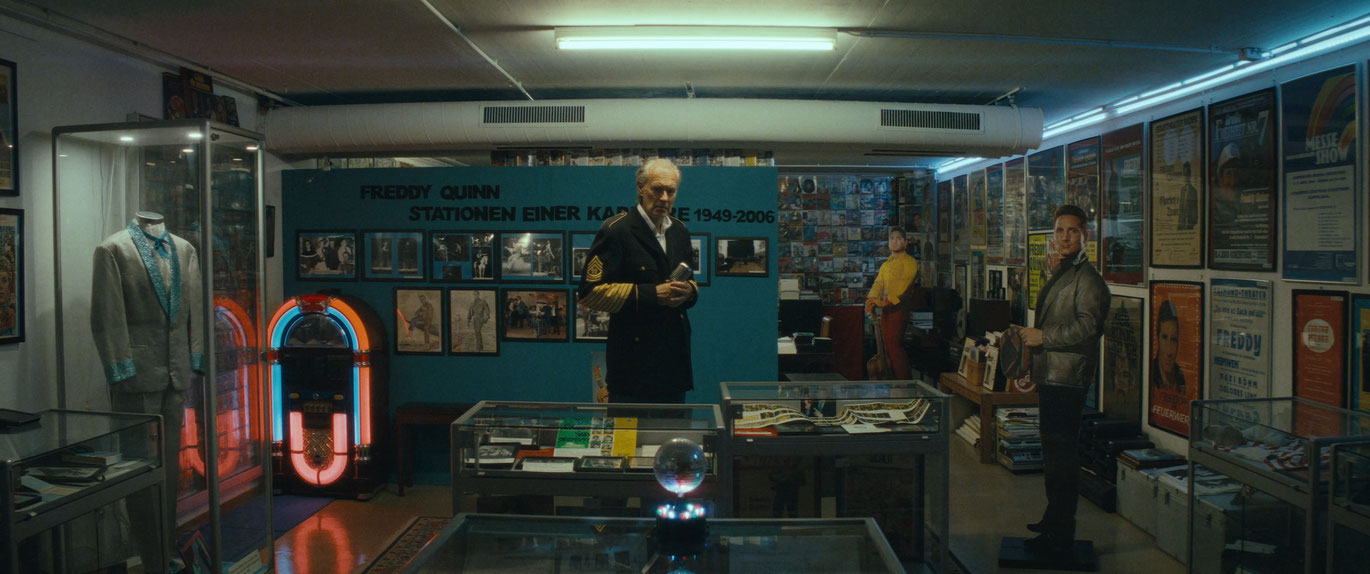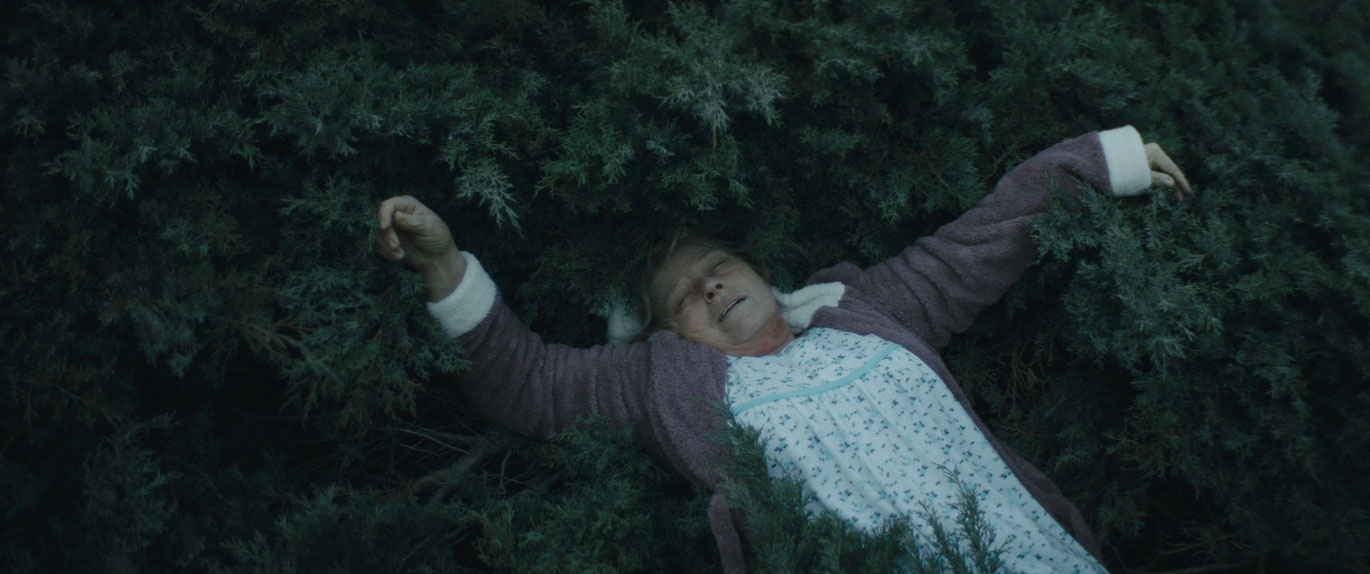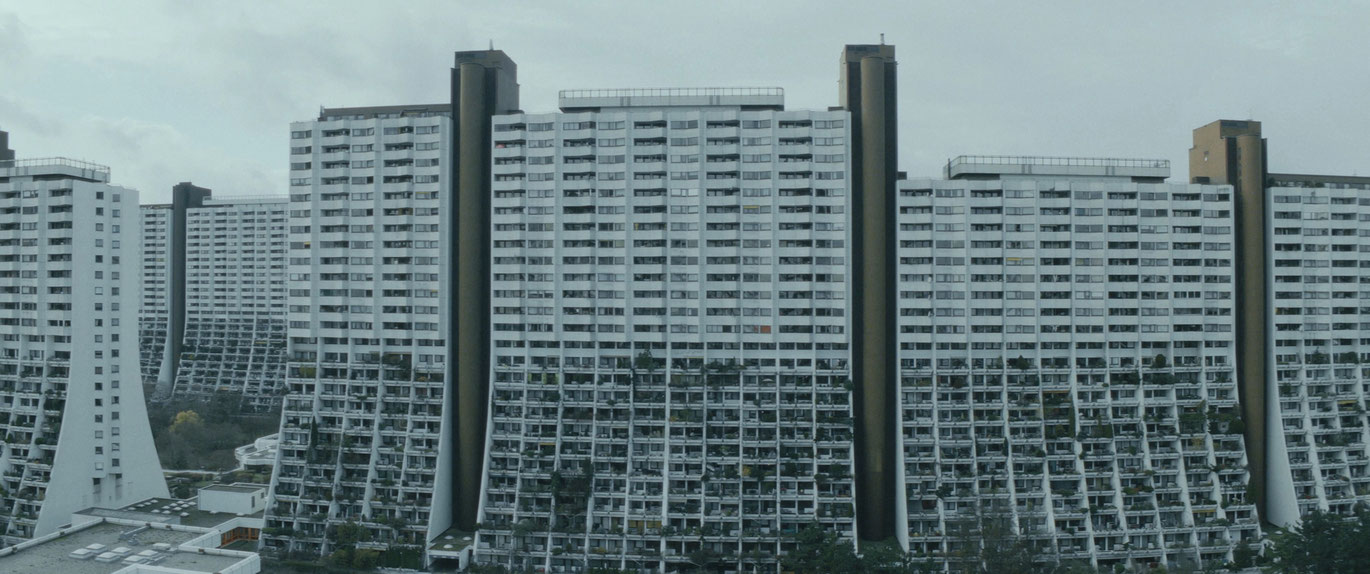Ruletista
Blocks of high-rise buildings reach indifferently towards the sky. Meanwhile an elderly lady (Margarete Tiesel), stooped over, pushes her way along the sidewalks and through the corridors of the social-utopian satellite city, which has been quietly worn down over more than fifty years of existence. In her arms is a parcel containing her dead cat, a silent witness to the woman’s impending suicide. In Vienna’s huge Alterlaa housing development, devoutly and at any rate mythically hyped as a “city within the city”, the lives of hundreds and thousands are stacked on top of each other, neatly separated from each another, and in little danger of sudden communitization. Microcosms exist within a macro vision, where sometimes only a hallway and an apartment door stand between the physical exercise of rhythmic water gymnastics and the brute misery of someone wishing to commit suicide.
In Ruletista, in a thoroughly humorous and always idiosyncratic way, Lukas Valenta Rinner combines images, characters, and atmospheres of the miserabilism typical of contemporary Austrian cinema with a lyrical narrative style (elevator pitch: a film co-directed by Ulrich Seidl and Lucrecia Martel). It opens up a veritable landscape of the soul, in which the crossing of boundaries and non-observance of rules allow the last inklings of a romantic concept of freedom. Otherwise, all futures have already passed here: the (incidentally sensational) film music retrofuturistically frames them with percussive and electronic elements, while the (incidentally splendid) camera captures them between the utopian façade and the reflection of the forfeited inner life ultimately driving the elderly woman towards a community and, as blood drips from her face, making her smile. A round of Ruletista is still possible. Until it no longer works. (Markus Keuschnigg)
(Translation: John Wojtowicz)
Ruletista
2024
Austria
20 min



